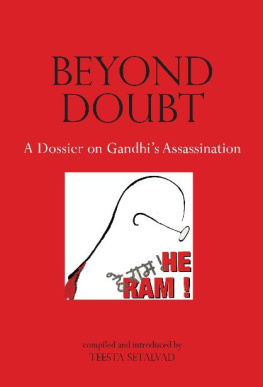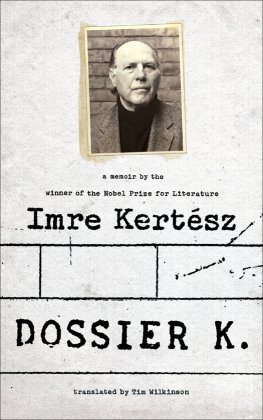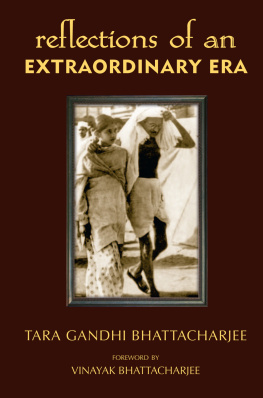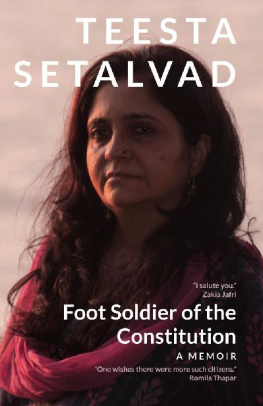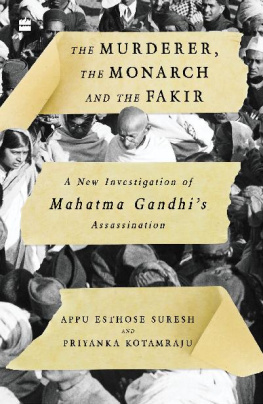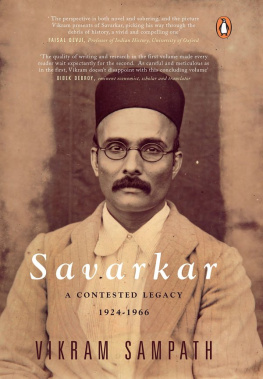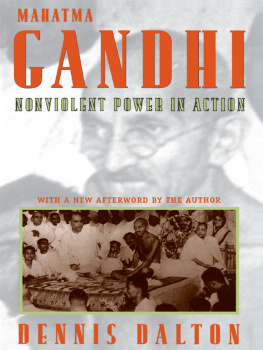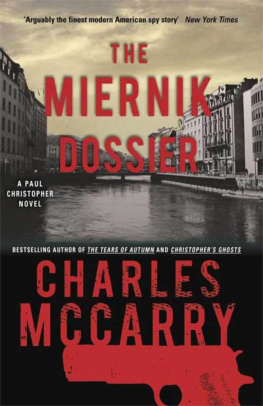Contents
Archival Truths
Rebutting the RSS Story
RSS Speak
Preface
The compilation of this volume has a singular purpose. Planned for over a year, as the dark clouds of majoritarian politics made their bid for power, and won, in the May 2014 lok Sabha elections, publishing archival documents related to Gandhis assassination became vital. The press note issued by the Government of India banning the Rashtriya Swayamsevak Sangh (RSS), as also related governmental documents, are even now in danger of being destroyed. Attempts to hold the present government responsible for this destruction through the Right to Information Act (RTI), 2005 have not been entirely successful.
Gandhi, a political figure with a vast following across India, South Asia and the world, has had to live with more than his share of detractors and this is to be expected. His appeal, even after the Partition, in Pakistan led to two moving editorials by Faiz Ahmad Faiz that we carry in this dossier. I am grateful to historian and friend Dr Mubarak Ali for helping me access these from the SAARC Library Secretariat.
However, it is the visceral denigration and hatred that Gandhi has drawn from particular regions of India, specifically with the emergence of a rabid Hindutva right, that needs to be understood. In this, Maharashtra and Gujarat are at the forefront. Substantive and well-documented responses to these calculated attempts have also emerged from the very regions where Gandhi has been so reviled. They deserve a place in the national discourse. Many of these responses have been previously published in Communalism Combat (2000 and 2004). Fifteen years later, thanks to Tulika Books, we are placing these documents with comprehensive references together in the public domain.
The volume attempts to weave together these archival documents from the Government of India records related to developments after the assassination, with the translation of works in Marathi de-constructing the ideology responsible for the political murder. To date, much energy and resources have been spent by the Sangh in obfuscating the careful planning and conspiracy behind the killing.
A translation of Jagan Phadniss book Mahatmyachi Akher (Last Days of the Mahatma) will be available for the first time to readers in english in this volume. The translation is by Suresh Bhosale and Bhakti Bhalwankar. Seven editions of this important work have already been published by lokvangmaya Griha, Mumbai, and we are thankful for their permission to bring out the english translation. I particularly thank Prakash vishwasrao for help in this regard. The first edition was published in 1994 by Anil Mehta of Mehta Publishing House.
My career that began as a mainstream print-media journalist was mentored and guided by among the best in Marathi journalism. Jagan Phadnis, of Maharashtra Times , was one of them. In this work, which is his fourth book, Phadnis has contextualized the conspiracy behind the killing of Gandhi while bringing to Marathi readers, possibly for the first time, details of the multiple attempts on Gandhis life. Gandhi is a political figure who, while being deeply religious at a personal level, remained modern and inclusive in his vision of nation-building. To date, Gandhi presents a real threat to the politics of Hindutva majoritarianism and this is sharply emphasized in Phadniss work.
Between 1998 and 2004, when a government under the direct influence of the Rashtriya Swayamsevak Sangh (RSS) ruled India, brazen moves were made to glorify the killers of Gandhi in the public sphere. Pradeep Dalvis play Mee Nathuram Godse Boltoye (I am Nathuram Godse Speaking) was systematically used for this purpose. Historian Y.D. Phadkes Nathuramayan , a series of articles carried in the Marathi evening newspaper Mahanagar , had effectively analysed the politics behind this play that deliberately manipulated historical facts with the sole objective of glamourizing Gandhis assassin. Professor Mukta Rajadhyaksha translated this series into English which was published in the October 2000 issue of Communalism Combat , and it is now reproduced in this volume. Chunibhai Vaidyas pamphlet, originally in Gujarati but also translated into seven languages, was published by the Mumbai Sarvodaya website (mkgandhi-sarvodaya.org) and is included here with grateful acknowledgement. It analyses both the Marathi and Gujarati versions of the play. Chunibhai Vaidya of the Gujarat lok Samiti was a doyen of the anti-communal movement in Ahmedabad who passed away recently. The last Hours of the Mahatma by Stephen Murphy is gratefully reproduced from the website www.mkgandhi.org, so painstakingly put together by T.K. Somaiya of the Bombay Sarvodaya group. Somaiyajis personal commitment to communal harmony and the furthering of IndoPakistan ties is legendary.
During the first minority NDA government, efforts were made to drastically tamper with the Collected Works of Mahatma Gandhi ( CWMG ) and Tridip Suhrud, presently Director of the Sabarmati Ashram, Ahmedabad, had closely analysed, in an article for the Economic and Political Weekly , this deeply flawed exercise. we are grateful for permission to reproduce that analysis.
Frontline carried an important interview by Arvind Rajagopal with the brother of Nathuram, Gopal Godse, in February 1994, soon after a memorial meeting held in Bombay (1993) that was extremely embarrassing for the Bharatiya Janata Party (BJP) which has tried, unsuccessfully, to disown connections with Gandhis killer. Gopal Godse was co-conspirator in the killing and convicted for the offence. Nathuram Godse made his lifelong association with the Sangh clear in his statement at the murder trial. This was originally published in 1977 in a volume titled May It Please Your Honour . Godse said, I am one of those volunteers who joined the Sangha in its initial stage (p. 142). He stated that he left the RSS to do more direct political work in the Hindu Mahasabha (he does not say when). But his brother Gopal Godse suggests to Frontline that Nathuram never really left the RSS and adds further that the statement at his trial was meant to alleviate the pressure on the Sangh, which was banned following Gandhijis murder. A leader of the Hindu Mahasabha, Shyama Prasad Mookherjee, went on to found the Jana Sangh, a political party that was a forerunner of the BJP. we are grateful to Frontline for permission to reproduce Arvind Rajagopals interview and accompanying article here, as well as to Outlook for permission to reproduce excerpts from another first-person account (1998) of former RSS chief, Professor Rajendra Singh (Rajju Bhaiya). In this account, he applauds the intention of Godse while saying that his methods may have been wrong. l.S. Hardenia, senior journalist and activist from Bhopal, provided copies of the document showing the RSSs mouthpiece, Organiser , advertising for sale the books of both Nathuram Godse and Gopal Godse on the assassination.
To understand the cruel, militaristic training that the RSS and the Hindu Mahasabha carry out, we have included an important excerpt from the novel Tamas by Hindi writer Bhisham Sahni, which was translated by Jai Ratan. we are grateful to kalpana Sahni for permission to include this.
D.R. Goyals Rashtriya Swayamsevak Sangh remains one of the most important books on this organization and hence the extract from the book, as also from Khaki Shorts and Saffron Flags that tells readers of the non-participation of the RSS and the Hindu right in the Indian freedom movement.
The second volume of this dossier will bring to readers the Report of the Justice kapur Commission, constituted to investigate the Gandhi assassination, with a detailed introduction and annotations.


